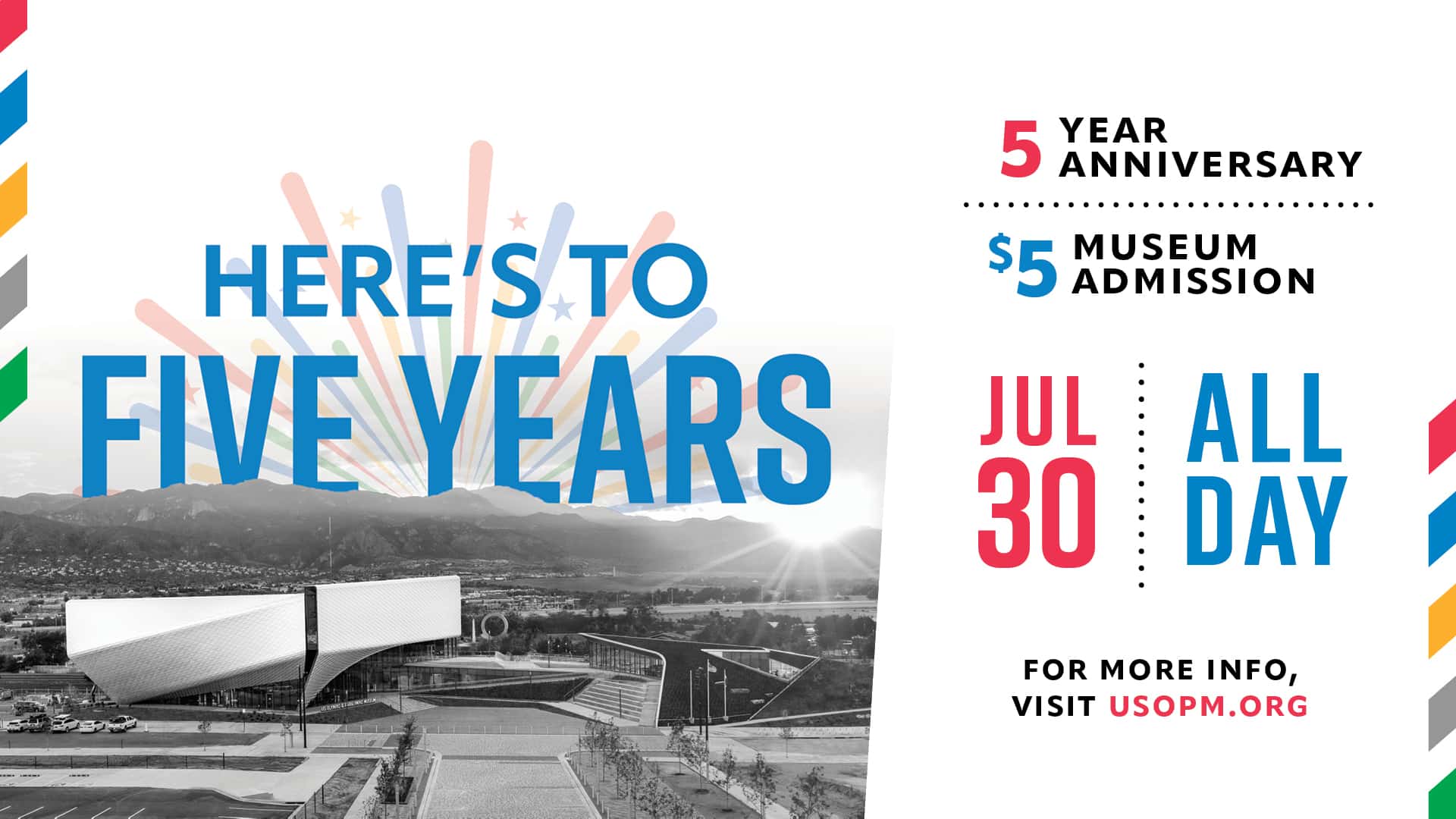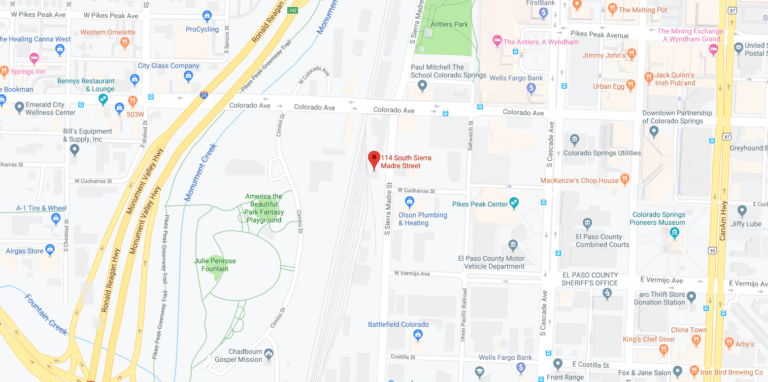Originally published in ‘Gazette‘
DENVER – The City for Champions projects got a green light Thursday when the Colorado Economic Development Commission approved the final details of an agreement for
$120.5 million in state tax incentives for the project over the next 50 years.
“It’s a significant milestone that we are very proud of,” said Laura Neumann, spokeswoman for the City for Champions project. “Many of our citizens are very excited about what this is going to bring.”
Neumann, who was in Denver on Thursday at the Economic Development Commission meeting, said the four projects proposed as part of City for Champions will bring jobs, a revitalized downtown and increased quality of life.
It has been nine months since the state approved the city’s application for Regional Tourism Act dollars to help pay for construction of a downtown Olympic museum and adjacent sports and events arena, a sports medicine clinic at the University of Colorado at Colorado Springs and a visitors center at the U.S. Air Force Academy.
During that time, the city and the state hashed out details of how the money would flow to the projects and set up guardrails to protect the state taxpayer dollars from being wasted or misspent.
Key among those protections, commissioners said in their August meeting, is ensuring that the two cornerstone projects – the arena and the museum – are constructed.
To that end, the resolution approved Thursday requires 42 percent of any state sales tax revenue allocated to the projects go to the Olympic museum, 23 percent to the sports complex, 14 percent to the sports medicine center and 5 percent to the visitors center.
The remaining 16 percent of the funding is being withheld until “substantial work” has begun on the Olympic museum. Then the Colorado Springs Urban Renewal Authority, which voted Wednesday to act as the intermediary for state money and as somewhat of a project manager, will be able to allocate the money to any of the projects or to ancillary projects associated with the museum and arena.
That could include such things as construction of a parking garage or a pedestrian bridge over the railroad tracks connecting the facilities with the rest of downtown if they’re built, as proposed, in southwest downtown.
Not everyone is pleased with the agreement.
For starters, several members of the Colorado Springs City Council would have liked the agreement to come before the council for approval.
The question was raised to the Economic Development Commission whether the resolution was an intergovernmental agreement that requires approval from the council.
LeeAnn Morrill, first assistant attorney general, told commissioners Thursday that the resolution was a unique legal document called for under the Regional Tourism Act and not an intergovernmental agreement.
Colorado Springs City Council member Joel Miller sent a letter to the commission taking issue with the fact that Mayor Steve Bach is designated by the resolution as the person authorized to implement conditions of the agreement.
“I can find no section of the Regional Tourism Act that gives the EDC the authority to direct a home rule city in such a way,” Miller said in the letter.
He also took issue with a few scaled-back requirements in the resolution.
For example, early drafts of the resolution included requirements that the city obtain 20 letters of intent from Olympic or amateur sporting events to use the new sports arena during the first two years of the project’s operation.
The final resolution requires only that the city submit a business plan that outlines hosting such events at the facility.
Project updates
Neumann said all four projects have been waiting for state approval of the resolution to move forward.
Some are closer to obtaining final funding and starting construction than others. She noted that the sports clinic at UCCS and the Olympic museum are “well in motion.”
“UCCS looks forward to working with our City for Champions partners and to aggressively start the planning and implementation of the sports medicine and performance center in the Health and Wellness Village on North Nevada Avenue,” UCCS Chancellor Pam Shockley-Zalabak said in a statement to The Gazette.
Neumann said the city is responsible for the arena, and the financing of that project will require ongoing public conversations. A public meeting is scheduled for 6 p.m. Tuesday at the Southeast and Armed Services YMCA, 2190 Jet Wing Drive.
Neumann also said the city will hold a celebration in October to kick off the projects.
Kristen Downs, director of administration for the U.S. Olympic museum project, declined to comment about the progress of the museum or the next steps.
“I defer to the city,” she said. “I am very pleased with the news.”
The U.S. Olympic museum appears to be the furthest along of the four planned tourism projects.
Two years ago, Dick Celeste, president of the museum’s board of directors, assembled the board and was in the early stages of raising private money when the project was added to the City for Champions.
In March, Downs announced that the museum’s board of directors was ready to put out requests for proposals for design for the planned 60,000-square-foot museum, which promises to include a theater and exhibition hall.
Organizers, who want to complete the project in three years, have said no local tax money will be needed to build the estimated $60 million facility.
Downs said the museum would have an announcement on the project’s progress in the next few weeks.
Air Force Academy spokesman John Van Winkle said the academy is updating its annual economic impact study.
When it is complete, the results will be used to make a case to Air Force leaders for the proposed $20 million, 32,000-square-foot visitors center, which would be more accessible to the public off Interstate 25.
A key point, Van Winkle said, is that the visitors center will not require local tax money.
–
Gazette reporter Monica Mendoza contributed to this report.
Neumann, who was in Denver on Thursday at the Economic Development Commission meeting, said the four projects proposed as part of City for Champions will bring jobs, a revitalized downtown and increased quality of life.
It has been nine months since the state approved the city’s application for Regional Tourism Act dollars to help pay for construction of a downtown Olympic museum and adjacent sports and events arena, a sports medicine clinic at the University of Colorado at Colorado Springs and a visitors center at the U.S. Air Force Academy.
During that time, the city and the state hashed out details of how the money would flow to the projects and set up guardrails to protect the state taxpayer dollars from being wasted or misspent.
Key among those protections, commissioners said in their August meeting, is ensuring that the two cornerstone projects – the arena and the museum – are constructed.
To that end, the resolution approved Thursday requires 42 percent of any state sales tax revenue allocated to the projects go to the Olympic museum, 23 percent to the sports complex, 14 percent to the sports medicine center and 5 percent to the visitors center.
The remaining 16 percent of the funding is being withheld until “substantial work” has begun on the Olympic museum. Then the Colorado Springs Urban Renewal Authority, which voted Wednesday to act as the intermediary for state money and as somewhat of a project manager, will be able to allocate the money to any of the projects or to ancillary projects associated with the museum and arena.
That could include such things as construction of a parking garage or a pedestrian bridge over the railroad tracks connecting the facilities with the rest of downtown if they’re built, as proposed, in southwest downtown.
Not everyone is pleased with the agreement.
For starters, several members of the Colorado Springs City Council would have liked the agreement to come before the council for approval.
The question was raised to the Economic Development Commission whether the resolution was an intergovernmental agreement that requires approval from the council.
LeeAnn Morrill, first assistant attorney general, told commissioners Thursday that the resolution was a unique legal document called for under the Regional Tourism Act and not an intergovernmental agreement.
Colorado Springs City Council member Joel Miller sent a letter to the commission taking issue with the fact that Mayor Steve Bach is designated by the resolution as the person authorized to implement conditions of the agreement.
“I can find no section of the Regional Tourism Act that gives the EDC the authority to direct a home rule city in such a way,” Miller said in the letter.
He also took issue with a few scaled-back requirements in the resolution.
For example, early drafts of the resolution included requirements that the city obtain 20 letters of intent from Olympic or amateur sporting events to use the new sports arena during the first two years of the project’s operation.
The final resolution requires only that the city submit a business plan that outlines hosting such events at the facility.
Project updates
Neumann said all four projects have been waiting for state approval of the resolution to move forward.
Some are closer to obtaining final funding and starting construction than others. She noted that the sports clinic at UCCS and the Olympic museum are “well in motion.”
“UCCS looks forward to working with our City for Champions partners and to aggressively start the planning and implementation of the sports medicine and performance center in the Health and Wellness Village on North Nevada Avenue,” UCCS Chancellor Pam Shockley-Zalabak said in a statement to The Gazette.
Neumann said the city is responsible for the arena, and the financing of that project will require ongoing public conversations. A public meeting is scheduled for 6 p.m. Tuesday at the Southeast and Armed Services YMCA, 2190 Jet Wing Drive.
Neumann also said the city will hold a celebration in October to kick off the projects.
Kristen Downs, director of administration for the U.S. Olympic museum project, declined to comment about the progress of the museum or the next steps.
“I defer to the city,” she said. “I am very pleased with the news.”
The U.S. Olympic museum appears to be the furthest along of the four planned tourism projects.
Two years ago, Dick Celeste, president of the museum’s board of directors, assembled the board and was in the early stages of raising private money when the project was added to the City for Champions.
In March, Downs announced that the museum’s board of directors was ready to put out requests for proposals for design for the planned 60,000-square-foot museum, which promises to include a theater and exhibition hall.
Organizers, who want to complete the project in three years, have said no local tax money will be needed to build the estimated $60 million facility.
Downs said the museum would have an announcement on the project’s progress in the next few weeks.
Air Force Academy spokesman John Van Winkle said the academy is updating its annual economic impact study.
When it is complete, the results will be used to make a case to Air Force leaders for the proposed $20 million, 32,000-square-foot visitors center, which would be more accessible to the public off Interstate 25.
A key point, Van Winkle said, is that the visitors center will not require local tax money.
–
Gazette reporter Monica Mendoza contributed to this report.














